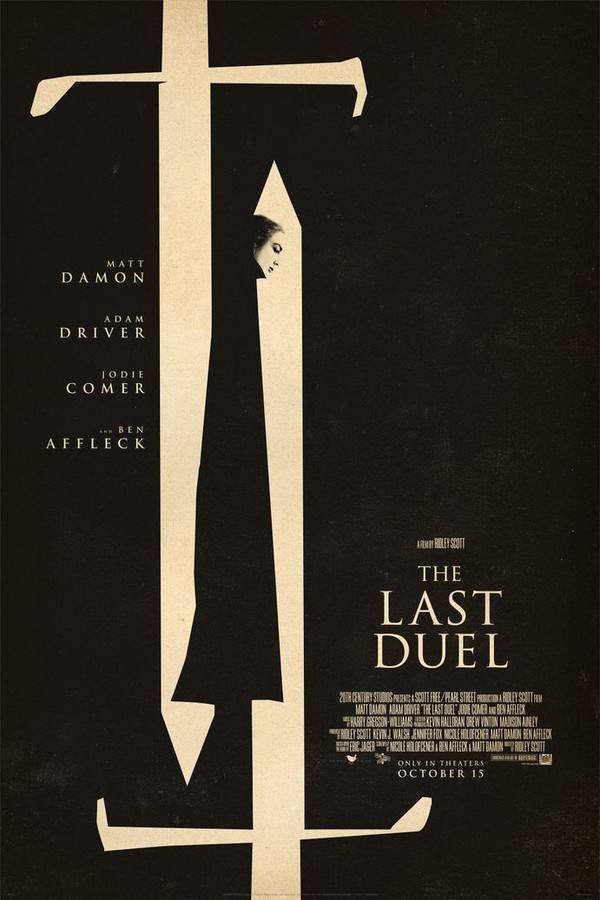The Last 2019

Bound by ancient magic, Arius finds himself trapped and seeking freedom. He's offered a chance at liberation by pursuing the soul marked with the dangerous Sword of Affliction. His quest leads him through perilous and treacherous landscapes, forcing him to confront not only external threats but also the darkness within himself as he struggles to survive.
Does The Last have end credit scenes?
No!
The Last does not have end credit scenes. You can leave when the credits roll.
Meet the Full Cast and Actors of The Last
Explore the complete cast of The Last, including both lead and supporting actors. Learn who plays each character, discover their past roles and achievements, and find out what makes this ensemble cast stand out in the world of film and television.
External Links and Streaming Options
Discover where to watch The Last online, including streaming platforms, rental options, and official sources. Compare reviews, ratings, and in-depth movie information across sites like IMDb, TMDb, Rotten Tomatoes or Metacritic.
Ratings and Reviews for The Last
See how The Last is rated across major platforms like IMDb, Metacritic, and TMDb. Compare audience scores and critic reviews to understand where The Last stands among top-rated movies in its genre.

The Movie Echo Score
In terms of the overall experience, The Last combines a compelling lead performance with inconsistent technical execution. Critics praise the commanding turn by Rebecca Schull, while lamenting amateurish direction and a flat visual approach. User feedback echoes this imbalance, noting moments of excitement amid dull pacing and sparse narrative cohesion. The mixture of strong acting and uneven craftsmanship yields a film that remains engaging in parts but ultimately falls short of its ambitious premise.
The Movie Echo Score Breakdown for The Last

Art & Craft
In terms of art and craft, the film’s direction and cinematography often feel flat and uninspired. Critics note a pervasive amateurish quality that undermines the premise, with a static shooting style and minimal visual flair. User responses rarely highlight production design or editing strengths, focusing instead on an unremarkable aesthetic. Overall, the visual craft fails to elevate the material.

Character & Emotion
When it comes to character and emotion, the lead performance by Rebecca Schull stands out for its restraint and depth. Critics consistently commend her nuanced underplaying, and supporting actors receive mixed but generally positive mention. User opinions on acting vary from praise for engaging portrayals to criticism of mediocrity. Ultimately, the central performance anchors the film despite uneven support.

Story & Flow
In terms of story and flow, the film presents an intriguing concept that is undercut by uneven pacing. Critics criticize lengthy monologues, dangling questions, and a dubiously earned conclusion, while users describe a lack of coherent background and occasional dullness. Though the narrative offers moments of interest, the inconsistent structure and clarity hinder full engagement.

Sensory Experience
When assessing sensory experience, the film offers sporadic moments of excitement amid an otherwise flat sound and visual landscape. Critics point to a lack of notable sound design or musical emphasis, and users are split between praising edgy action sequences and noting a sterile overall aesthetic. While certain scenes register energy, the cohesion of sensory elements remains limited.

Rewatch Factor
In terms of rewatch factor, the film generates limited incentive for repeated viewings. Few users express a desire to revisit, with several reporting ambivalence or walking out early, and critics find little reward in reexamining unresolved narrative threads. As a result, the lasting appeal and enjoyment on subsequent viewings are modest at best.

57
Metascore
tbd
User Score

7.3 /10
IMDb Rating

60
%
User Score

4.1
From 2.3K fan ratings

4.00/5
From 1 fan rating
Take the Ultimate The Last Movie Quiz
Challenge your knowledge of The Last with this fun and interactive movie quiz. Test yourself on key plot points, iconic characters, hidden details, and memorable moments to see how well you really know the film.
The Last: A Quiz on Betrayal and Honor: Test your knowledge on the gripping tale of honor, betrayal, and justice in 'The Last'.
Who did Jean de Carrouges swear fealty to after returning from the Caroline War?
Count Pierre d'Alençon
King Charles VI
Jacques Le Gris
Marguerite de Thibouville
Show hint
Full Plot Summary and Ending Explained for The Last
Read the complete plot summary of The Last, including all major events, twists, and the full ending explained in detail. Explore key characters, themes, hidden meanings, and everything you need to understand the story from beginning to end.
In Chapter One, we delve into the perspective of Jean de Carrouges. After serving in the Caroline War, Jean and his companion, squire Jacques Le Gris, pledge their loyalty to Count Pierre d’Alençon, designated as Jean’s overlord by King Charles VI. Jacques relays to Jean that Pierre has issued a mandate for his new vassals to pay war levies. When Jean cites his financial difficulties, Jacques agrees to appeal for leniency on his behalf. To improve his circumstances, Jean weds Marguerite de Thibouville, gaining a substantial dowry and rights over numerous estates. Unfortunately, Pierre has already entrusted a portion of land to Jacques. When Jean sues for ownership, King Charles dismisses his claim. In retaliation, Pierre appoints Jacques to captain the fort historically held by Jean’s family. A military campaign in Scotland earns Jean a knighthood for his valor but leaves him in financial ruin. Upon returning home from Paris, Marguerite reveals the shocking news that Jacques raped her while she was alone. Knowing that Jacques enjoys Pierre’s protection, Jean resolves to challenge Jacques to a duel to the death, a challenge that Charles VI approves.
Chapter Two shifts to the perspective of Jacques Le Gris. Jacques secures Pierre’s favor through his adeptness in accounting, which earns him a prominent position at court. During his encounters with Marguerite, Jacques believes he has won her affection due to her kindness. One fateful day, while Jean is away, Jacques takes advantage of Jean’s absence. His servant deceives Marguerite into admitting them by claiming to need assistance with his horse. Once inside, Jacques professes his love, but Marguerite firmly rejects him and insists on her marital vows. Ignoring her pleas, Jacques pursues her into her chamber, where he brutally assaults her, mistakenly interpreting her resistance as consent. Later, Pierre informs Jacques of Jean’s accusations of rape against him, but Jacques remains unperturbed by the count’s authority. Jean’s insistence on appealing to King Charles and demanding a duel escalates the situation.
In Chapter Three, we witness Lady Marguerite de Thibouville’s perspective. Her marriage with Jean is strained, primarily due to her inability to conceive. After her interactions with Jacques, Marguerite confides in friends that her kindness was merely a strategy to garner favor at court. When Jean departs for Scotland, he explicitly instructs her to remain within the castle and bar anyone from entering. However, Jean’s mother takes all the servants with her on errands, leaving Marguerite vulnerable. Jacques, seizing the opportunity, arrives with his servant and orchestrates his entry under deceptive pretenses. Haughtily declaring his love, he forces his way into their bedroom and violently rapes Marguerite. When Jean returns, she courageously reveals the truth about the assault. Despite Jean’s mother’s attempts to persuade Marguerite to retract her claims for the sake of her son’s safety, Marguerite remains steadfast in her accusation. As a consequence, Jean seeks a trial for Jacques, culminating in a duel to the death granted by Charles VI. Days before the duel, Marguerite gives birth to their son, adding emotional stakes to the impending conflict. The duel commences with jousting, and when both men are unseated, they engage in brutal hand-to-hand combat. Although Jean suffers a stab wound, he ultimately overpowers Jacques. Pressuring Jacques to confess or face eternal damnation, Jacques stubbornly professes his innocence until Jean kills him. In the aftermath of his victory, Jean basks in triumph while Marguerite quietly trails behind him.
In a reflective epilogue, we learn of Jean’s fate, dying in the Crusades shortly after, leaving Marguerite to manage his estate peacefully for the next thirty years, resolved never to remarry.
Uncover the Details: Timeline, Characters, Themes, and Beyond!

Coming soon on iOS and Android
The Plot Explained Mobile App
From blockbusters to hidden gems — dive into movie stories anytime, anywhere. Save your favorites, discover plots faster, and never miss a twist again.
Sign up to be the first to know when we launch. Your email stays private — always.
Watch Trailers, Clips & Behind-the-Scenes for The Last
Watch official trailers, exclusive clips, cast interviews, and behind-the-scenes footage from The Last. Dive deeper into the making of the film, its standout moments, and key production insights.
Cars Featured in The Last
Explore all cars featured in The Last, including their makes, models, scenes they appear in, and their significance to the plot. A must-read for car enthusiasts and movie buffs alike.
The Last Themes and Keywords
Discover the central themes, ideas, and keywords that define the movie’s story, tone, and message. Analyze the film’s deeper meanings, genre influences, and recurring concepts.
The Last Other Names and Titles
Explore the various alternative titles, translations, and other names used for The Last across different regions and languages. Understand how the film is marketed and recognized worldwide.
Similar Movies To The Last You Should Know About
Browse a curated list of movies similar in genre, tone, characters, or story structure. Discover new titles like the one you're watching, perfect for fans of related plots, vibes, or cinematic styles.
Quick Links: Summary, Cast, Ratings, More

What's After the Movie?
Not sure whether to stay after the credits? Find out!
Explore Our Movie Platform
New Movie Releases (2025)
Famous Movie Actors
Top Film Production Studios
Movie Plot Summaries & Endings
Major Movie Awards & Winners
Best Concert Films & Music Documentaries
Movie Collections and Curated Lists
© 2025 What's After the Movie. All rights reserved.




































